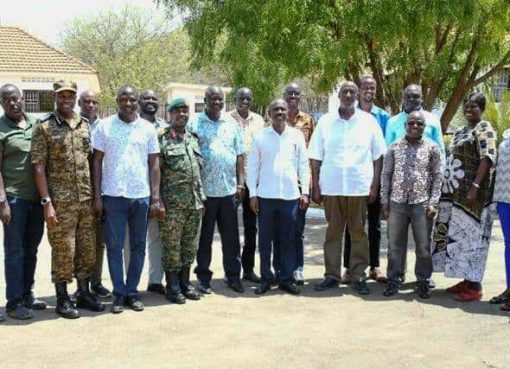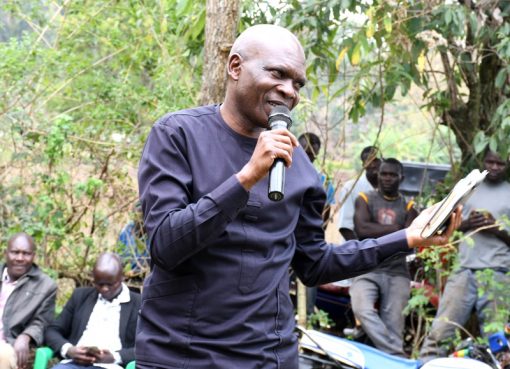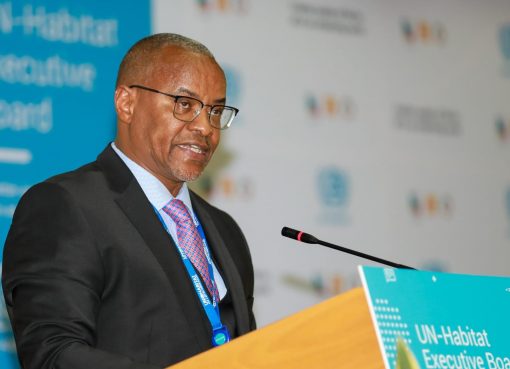Tenders from ministries, departments and semi-autonomous government agencies awarded to youth, women and persons with disabilities defied Covid-19 economic aftershocks and rose to Sh 26.47 billion in the 2020/2021 Financial Year compared to tenders valued at Sh 22.81 billion in the 2019/2020 Financial Year.
Acting General Manager, Technical Services-Public Procurement Regulatory Authority (PPRA) Mr. Henock Korosso Kirungu said the improvement was largely due to gradual resumption of public projects and steady reopening of the economy following a yearlong disruption by the disease.
Addressing students and delegates at Kabarak University’s Main Campus in Rongai Sub-County Nakuru County during the institution’s 11th International Research Conference, Mr Kirungu noted that under the Access to Government Procurement Opportunities (AGPO) initiative youth, women and persons with disabilities had been awarded tenders worth Sh 30.13 billion in 2018/2019 financial year which sharply dropped by Sh 8 billion the following financial year after the government reduced procurements due to Covid-19.
In the Financial Year ended June 30, 2021, Mr Kirungu who is also the Principal Deputy to the Director General-PPRA, indicated that out of the 25,278 contracts worth 26.47 billion, 13,078 valued at Shs13.81 billion were allocated to women, 10,411 (Sh 10.65 billion) went to the youth while 1,789 (Sh 2 billion) benefited persons with disabilities.
“As PPRA, we are putting on notice national and county governments’ officials who have been flouting procurement laws which were amended in 2013 to allow 30 per cent of all government contracts to be given to three special interest groups, the youth, women and the disabled.
In the 2020/2021 Financial Year, out of 25,278 tenders awarded under AGPO, women won 50 percent of them while youth and persons with disabilities were awarded 44 percent and 6 percent respectively,” he pointed out.
The PPRA official said if the procurement laws were strictly observed, they would promote economic, social and political development.
Also present during the conference themed, ‘Digital Economy in Africa and Innovative Opportunities for the Youth amidst Emerging Economic Challenges’ were Kabarak University Chancellor who is also Baringo Senator Gideon Moi, Vice Chancellor Prof Henry Kiplagat and Dean, School of Business and Economics Dr Patrick Kibati in the event that was also moderated via Zoom by Dr Nehemiah Kiprop.
Mr Kirungu urged women and the youth to fight for their share of the national cake.
“We want to see them registering companies so that they can benefit,” he said.
He indicated that establishment of AGPO secretariat by the Treasury, exemption of special interest groups’ tenderers from provision of securities, automated and easy access to registration of eligible suppliers at all Huduma Centers were some of the measures instituted by the government to enhance participation of women, youth and persons with disabilities.
“The law now allows Local Purchase Order (LPO) financing where financial institutions can advance credit facilities to special interest groups on the strength of LPOs. Both levels of government have been facilitating and registering special interest groups to enable them apply for tenders,” observed the PPRA official.
He indicated many young people are not taking advantage of the opportunities in tendering largely because of inadequate information and lack of patience to walk through the tendering red tape.
“Most youths do not apply for government tenders because they do not know how to go about it. No one has trained them and their basic knowledge has deterred them from pursuing national and county governments’ tenders.
Mr Kirungu also indicated that limited financing and lack of collateral among special group members, misplaced emphasis on well-established tenderers, demand for high technical and financial requirements, inadequate capacity and performance among special group members were some of the factors discouraging youth, women and people with disabilities from public tendering.
“Sometimes projects are designed with focus on large local and foreigners’ bidders. There are situations where the special groups do not have access to technology and are not exposed to online procurement practices
“To remedy the situation PPRA is working with other agencies to offer training on procurement to special groups. We are putting in place measures to ensure that payments are made promptly to tenderers after supply of goods and services,” affirmed Mr Kirungu.
He further blamed poor documentation and quotation by youth-run enterprises when applying for contracts for their plight.
Mr Kirungu said many youth do not stick within stipulated price guides of specific contracts and either overprice or grossly undercharge the government.
“In order to access government procurement opportunities, the youth must register a business as a sole proprietorship, partnership, a limited company or a co-operative.
At least 70 per cent of the membership of the registered entities must comprise the youth and the outfits’ leadership must be 100 per cent youth, women and PWDS.
A PIN and tax compliance or tax exemption certificate from the Kenya Revenue Authority is also required,” the official added.
By Anne Mwale





